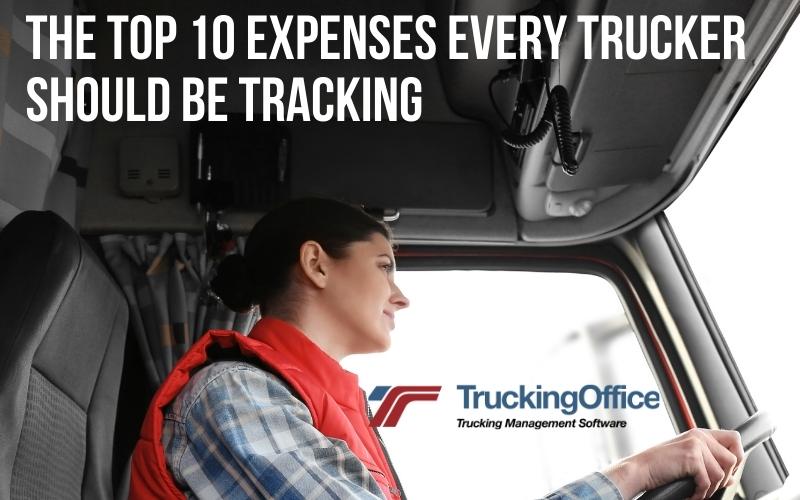Whether you’re an owner-operator or fleet owner, you must control the costs of your operation if you intend to make money. Of course, your biggest expense is the vehicle itself, but what about all those other daily costs that chip away at your profit? Can you lower them if you have a grasp of the big picture? Absolutely. So, let’s take a look at the top 10 expenses truckers should track on their trucking industry reports if they want to succeed in the business.
Difference Between Fixed and Variable Costs
Before completing any reports, you need to be sure you’ve included everything. First, you should classify your expenses into two main categories:
- Fixed costs: Fixed costs are the expenses you’ll have whether or not your truck ever leaves the parking lot. These costs usually stay the same but may change a little from time to time.
- Variable costs: Variable costs are the expenses you incur while driving your truck. This amount varies with the number of miles driven.
Why is this information important? Because tracking fixed costs helps you see the daily expense of running your operation. Equally important, tracking the variable costs let’s you know how much you spend on the road and where you can cut back.
Furthermore, when you compare fixed and variable costs, you can better understand what areas you need to focus on. The information will help you make informed decisions rather than just driving by the seat of your pants.
Top 10 Expenses You Should be Tracking
You became a professional motor carrier for two main reasons: to be your own boss and to make money. In order to meet those goals, you’ve got to stay in business. Knowing where your money is going or where it’s coming from is up to you. So, here are the top 10 expenses you should be tracking:
Fixed costs:
- Vehicle payments
- Permit costs and license fees
- Insurance premiums
- Cell phone payments
- Accountant costs
Variable costs:
- Fuel
- Tires and maintenance
- Tolls
- Lodging
- Food
You may not be able to lower your fixed costs by much, but you can shop around and compare prices on insurance and cell phone providers.
Reducing variable costs can really make a difference and may put some extra cash in your pocket. Here are a few examples:
- Prepare your own food for the road.
- Plan lodging and dining locations ahead of time to save money.
- Change some of your driving habits to improve fuel mileage.
- Purchasing high quality parts for maintenance can save money in the long run.
You have many options for cutting costs when it comes to variable expenses, so make a list, and get started.
How TruckingOffice’s TMS and ELD Help You Reduce Trucking Expenses
When it comes to tracking your fixed and variable expenses, a TMS and ELD work together to give you the accurate data you need. Now comes the good part. Trucking software integrated with an ELD device can help you reduce those expenses. Here are a few examples of how it works.
- Prevent errors. Accurate math is vital to ensuring error-free quotes, invoices, IFTA reports, route planning, profit and loss statements, and more. You’ll avoid costly fines, penalties, and downtime.
- Follow your money. If you don’t know where your money is going or where it’s coming from, how can you determine whether you’re making a profit? The solution is a TMS and ELD partnership. Together, they provide the precise data needed to help cut expenses and increase revenue.
- Get organized. Still looking for that last fuel receipt? You won’t be able to calculate IFTA reports without it, which may result in a fine or worse. Did you forget to perform routine vehicle maintenance checks last week? That’s why the roadside inspector gave you a bad score or penalty. So, to avoid these issues, you must get organized. Our trucking software stores and organizes all your data in one secure place.
Want to know more about our trucking software? Sign up now to try out our free trial to find out how TruckingOffice helps you get organized and grow your business. Did we mention you’ll have more time to drive? That, too.







Just to touch on the tires and maintenance aspect, ensuring a thorough pre-trip is performed can save you chunk of change. Identifying maintenance issues early, especially tires, can save you from having a roadside repair vs a cheaper in shop repair.
Great Blog!Loved The Content!!!
Thank you for providing information regarding the trucker expenses. I appreciate your time and effort put into this information. For smooth working of your trucks, the maintenance should be properly done so as to reduce the expenses. visit breakdown inc and get necessary information regarding our truck repair services through our best assistance partners.